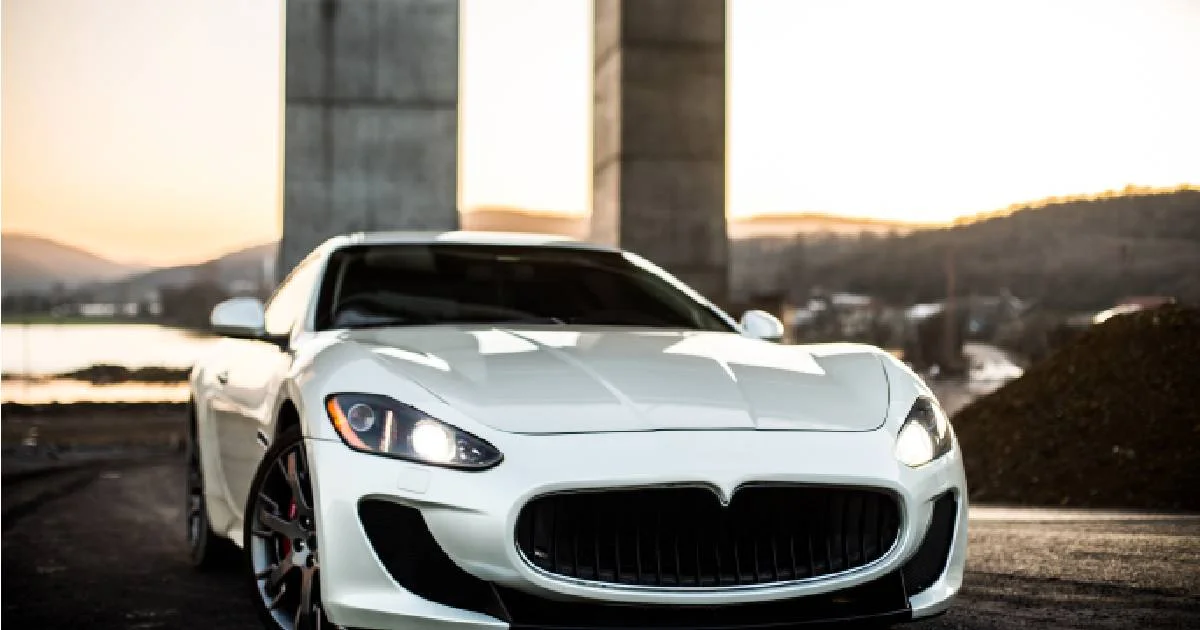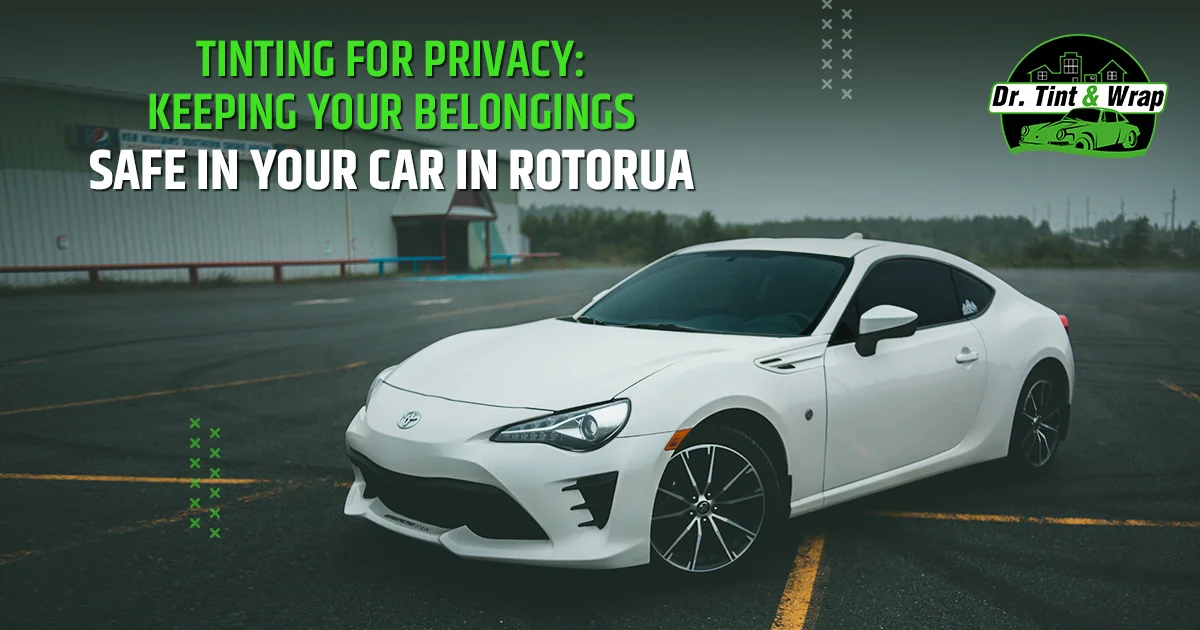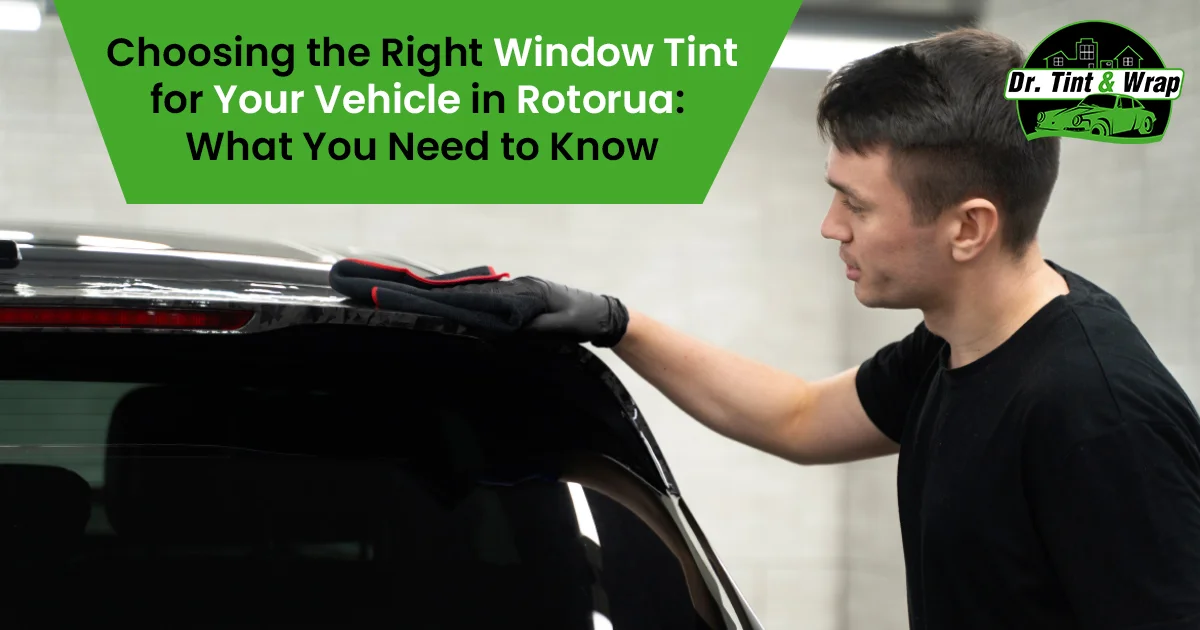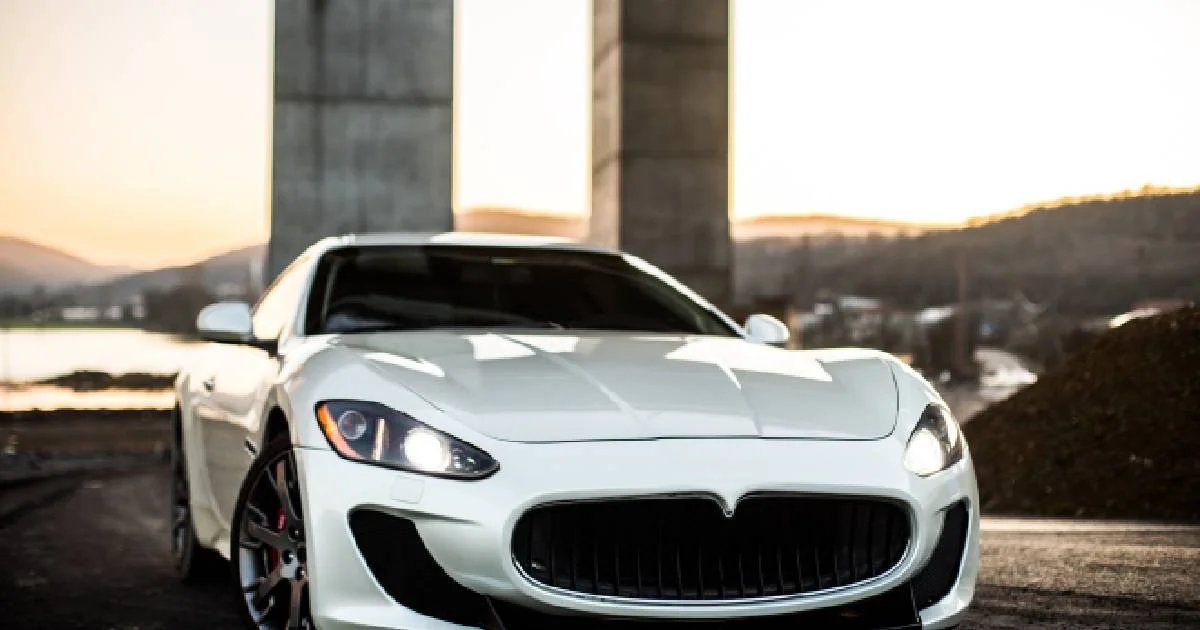
How to Find the Best Car Window Tinting Service in Hamilton
15 Dec 2023, By AdminIntroduction
Car window tinting not only enhances the aesthetics of your vehicle but also provides numerous benefits such as UV protection, heat reduction, and increased privacy. If you're in Hamilton and in search of the best car window tinting service, you've come to the right place. In this guide, we'll walk you through the steps to find the perfect tinting service for your car, ensuring quality and customer satisfaction.
Why is car window tinting important?
Car window tinting offers several benefits, including UV protection, heat reduction, enhanced privacy, and aesthetic appeal. It also helps protect your vehicle's interior from sun damage.
How can I find car window tinting services in Hamilton?
Start by searching online using the keyword 'car window tinting Hamilton.' You'll find a list of service providers in the area. Additionally, ask for recommendations from friends, family, or local car enthusiasts.
What factors should I consider when choosing a tinting service?
Consider the experience of the service provider, the quality of tint films used, customer reviews, and the warranty offered. Check if they comply with local tinting regulations and offer a variety of tint shades to suit your preferences.
Is it essential to choose a licensed and insured service?
Yes, it's crucial. A licensed and insured service provider ensures professionalism and compliance with industry standards. It also protects you in case of any unforeseen issues during the tinting process.
What types of tint films are available, and how do I choose the right one?
There are various tint film options, including dyed, metalized, carbon, and ceramic films. The choice depends on your priorities—whether you prioritize heat reduction, UV protection, or a particular aesthetic. Ask the service provider for recommendations based on your needs.
Are there different types of window tint films, and how do I choose the right one for my car in Hamilton?
Yes, there are various types of window tint films, and choosing the right one depends on your preferences and needs:
- Dyed Film: Offers a non-reflective appearance and absorbs solar heat. It's a budget-friendly option but may not provide as much heat rejection as other types.
- Metalized Film Provides excellent heat rejection and durability. It contains metallic particles for added sun protection but may interfere with electronic signals.
- Carbon Film Combines matte finish with high heat rejection. Carbon tinting is known for its color stability and does not interfere with signals.
- Ceramic Film Offers superior heat rejection without using metal layers. It is non-metallic, non-conductive, and allows for excellent visibility. However, it tends to be more expensive.
Consider your budget, aesthetic preferences, and desired level of heat rejection when choosing the right tint for your car in Hamilton. Discuss these factors with the tinting service to make an informed decision.
By considering these factors and asking the right questions, you can find the best car window tinting service in Hamilton that meets your needs and provides quality results.

Tinting for Privacy: Keeping Your Belongings Safe in Your Car in Rotorua
15 Dec 2023, By AdminRotorua, a picturesque city nestled in New Zealand's North Island, is a haven for tourists and locals alike. Known for its geothermal wonders, stunning lakes, and Maori culture, Rotorua attracts numerous visitors throughout the year. However, with increased tourism and daily activities, it becomes crucial to address the issue of car safety and privacy. One effective solution that has gained popularity in recent years is car window tinting. In this blog, we will explore the benefits of car window tinting in Rotorua, focusing on privacy and keeping your belongings safe.
The Beauty of Rotorua and Its Challenges
Rotorua's natural beauty and vibrant culture make it an ideal destination for both short trips and extended vacations. From exploring the geothermal wonders at Wai-O-Tapu and Te Puia to enjoying a peaceful stroll around Lake Rotorua, the city offers a wide range of attractions for everyone. However, it's important to remember that every city faces its own unique challenges, and Rotorua is no exception.
Tourist hotspots can also attract opportunistic criminals who may target unattended vehicles, especially those with visible valuable belongings. Whether you're visiting a geothermal park or enjoying a Maori cultural performance, leaving your car in a public parking area can sometimes be a risky proposition.
Car Window Tinting: An Effective Solution
Car window tinting has emerged as an effective and popular solution to address privacy and security concerns for car owners in Rotorua. Tinting involves applying a thin, transparent film to the interior of the vehicle's windows. This film can significantly reduce the visibility into the car's interior while still allowing occupants to see outside clearly.
Here are some of the key benefits of car window tinting for privacy and security:
- Enhanced Privacy: With the right tinting level, you can obscure the view from outside, ensuring that prying eyes cannot easily see your personal belongings or the interior of your vehicle. This added privacy can provide peace of mind while you explore Rotorua's attractions, go for a hike, or have a relaxing time in a hot spring.
- Protection from UV Rays: Car window tinting can block harmful ultraviolet (UV) rays, which not only protect your skin from sun damage but also prevent your car's interior from fading and cracking over time. This added protection is particularly valuable in a place like Rotorua, where the sun can be intense.
- Temperature Regulation: Rotorua experiences varied weather conditions, and the summer months can get quite hot. Tinted windows can help regulate the interior temperature, reducing the need for excessive air conditioning and making your driving experience more comfortable.
- Shatter Resistance: In the unfortunate event of an accident, car window tinting can hold shattered glass together, reducing the risk of injury to the vehicle's occupants. Moreover, this added strength can also deter thieves from breaking into your car, as gaining access becomes more challenging.
Choosing the Right Tint
Before getting your car windows tinted, it's essential to be aware of New Zealand's specific tinting regulations, which stipulate the permissible Visible Light Transmission (VLT) levels for different windows. For instance, the front-side windows must have a minimum VLT of 35%, while the rear and rear-side windows can have a lower VLT. It's advisable to choose professional window tinting services to ensure the tinting is done within legal limits and to guarantee the quality of the installation.
Car window tinting is an effective solution for enhancing privacy and security while enjoying the beauty of Rotorua. Not only does it protect your belongings from prying eyes and provide shade from the sun, but it also contributes to the safety and comfort of your vehicle. Before getting your windows tinted, make sure to check the local regulations and seek professional services to ensure a successful and legal tinting job.
Dr. Tint & Wrap Rotorua is renowned for its exceptional car window tinting services, setting the standard for excellence in Rotorua. With their skilled technicians and top-of-the-line materials, they deliver unparalleled results that leave customers delighted and their vehicles stylishly protected.

Choosing the Right Window Tint for Your Vehicle in Rotorua: What You Need to Know
15 Dec 2023, By AdminRegarding enhancing your vehicle's aesthetics and improving your driving experience in Rotorua, car window tinting is a popular choice among vehicle owners. The process of applying a thin layer of film to your car's windows offers numerous benefits, from reducing glare and UV radiation to providing increased privacy. However, choosing the right window tint for your car in Rotorua is crucial to ensure compliance with local regulations and achieve the desired results. In this blog, we will explore the key factors to consider when opting for car window tinting in Rotorua and why selecting a reputable service provider is essential for a successful installation.
1. Familiarize Yourself with Local Regulations
Before diving into the different types of window tints available, it's essential to understand the specific regulations governing car window tinting in Rotorua. New Zealand has strict laws regarding the darkness levels of window tints, which vary for different windows on the vehicle. Compliance with these laws is crucial to avoid legal complications and ensure a safe driving experience.
2. Types of Window Tints
Car window tints come in various materials, each offering different benefits and appearances. The most common types of window tints include:
a) Dyed Window Tinting: This type of tint uses multiple layers of dye to absorb solar heat and reduce glare. Dyed window tints are generally more affordable but may fade over time.
b) Metalized Window Tinting: Metalized tints are known for their heat-rejecting properties. They are durable, block UV rays effectively, and provide a reflective appearance. However, they may interfere with electronic signals like GPS and cell phone reception.
c) Carbon Window Tinting: Carbon tints are a premium option, offering superior heat rejection, reduced fading, and a sleek matte appearance. They do not interfere with electronic signals and are less prone to bubbling or discolouration.
d) Ceramic Window Tinting: Ceramic tints are the top-of-the-line choice, providing excellent heat reduction without affecting electronic devices. They also offer maximum UV protection and do not fade over time. However, they tend to be more expensive than other types of tints.
3. Consider Your Needs
While all window tints provide benefits such as heat reduction and UV protection, your specific requirements and preferences will help you choose the best option. If you're primarily concerned about cost-effectiveness, dyed or metalized tints may be suitable. For a balance between performance and aesthetics, carbon tints are an excellent choice. If budget is not a concern and you want the best of the best, ceramic tints are the way to go.
4. Seek Professional Installation
Professional installation is crucial to achieve optimal results regardless of the type of window tint you choose. A reputable car window tinting service in Rotorua will have skilled technicians who understand local regulations and can ensure a flawless application. DIY tinting or low-quality installation might lead to bubbling, peeling, or improper tint darkness, which not only looks unsightly but can also hinder visibility and compromise safety.
Car window tinting in Rotorua can be a game-changer for your vehicle, providing various benefits ranging from improved aesthetics to increased comfort and privacy. However, it's vital to educate yourself on local regulations, explore the different types of window tints available, and select a reliable service provider to ensure a successful installation. Dr. Tint & Wrap Rotorua is the ideal choice for your vehicle's window tinting needs in Rotorua, offering expert service and top-quality products to ensure optimal results. With their experienced team and commitment to customer satisfaction, you can trust them to provide the best window tinting solution for your car.

Pros and Cons of Car Wrapping: Is it Worth the Investment?
15 Dec 2023, By AdminIn recent years, car wrapping has become a popular trend among automobile enthusiasts and businesses alike. Whether you want to give your vehicle a fresh, unique look or use it as a marketing tool for your company, car wrapping offers a creative and eye-catching solution. However, like any automotive modification, car wrapping comes with its own set of pros and cons. In this blog, we'll explore the advantages and disadvantages of car wrapping to help you determine if it's worth the investment.
What Are Pros of Car Wrapping
- Aesthetic Appeal: Car wrapping allows you to change the appearance of your vehicle dramatically. With an extensive range of colors, finishes, and textures available, you can achieve a personalized look that suits your style or branding needs.
- Protection: Wrapping your car provides a layer of protection for the original paint. It shields the vehicle from minor scratches, chips, and UV rays. This added layer can help maintain the resale value of your car.
- Temporary Customization: Unlike a paint job, car wrapping is reversible. If you decide you no longer like the design or want to return your car to its original state, you can remove the wrap without any damage to the underlying paint.
- Advertising and Branding: Businesses can use car wrapping as a cost-effective and mobile advertising strategy. Wrapping a company vehicle with a logo, contact information, and eye-catching graphics can increase brand visibility and recognition.
- Versatility: Car wrapping can be applied to various types of vehicles, from compact cars to trucks, and even boats. This makes it a versatile option for both personal and commercial use.
- Fast Turnaround: The process of wrapping a car is generally quicker than a full paint job. This means less downtime for your vehicle, making it an attractive option for those who rely on their cars for daily transportation.
What Are Cons of Car Wrapping
- Cost: While car wrapping is more affordable than a custom paint job, it can still be a significant investment. The price varies depending on the size of your vehicle, the type of material used, and the complexity of the design.
- Durability: Car wraps are not as durable as paint. They can be damaged by rock chips, bird droppings, or harsh weather conditions. In addition, the lifespan of a wrap typically ranges from 3 to 5 years, after which it may begin to show signs of wear and tear.
- Installation Quality: The quality of a car wrap largely depends on the skill of the installer. A poor installation job can result in wrinkles, bubbles, or peeling, which can be unsightly and require costly corrections.
- Limited Repair Options: When a section of your wrap is damaged, repairing it can be challenging, especially if the color or design is no longer available. This might require redoing the entire wrap.
- Resale Value Concerns: While car wrapping can protect your vehicle's paint, some potential buyers may view it as a drawback, as they may be uncertain about the condition of the underlying paint. This could affect the resale value.
- Maintenance: Maintaining a car wrap requires specific care, such as hand washing and avoiding high-pressure car washes. Failure to do so could lead to premature deterioration of the wrap.
In conclusion, car wrapping offers an array of benefits, from aesthetics to advertising opportunities. However, it's essential to weigh these advantages against the potential drawbacks. Car wrapping can be a worthy investment for those looking for a temporary customization option or a unique way to promote their business. Still, it's crucial to choose a reputable installer and carefully consider the long-term implications, including maintenance and resale value concerns. If the pros align with your needs and budget, car wrapping can be an exciting and rewarding choice to transform your vehicle into a work of art or a moving billboard.
